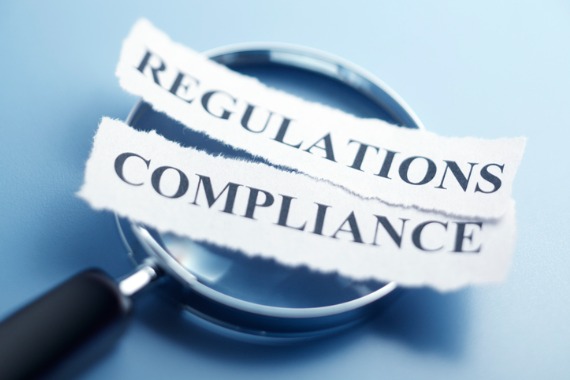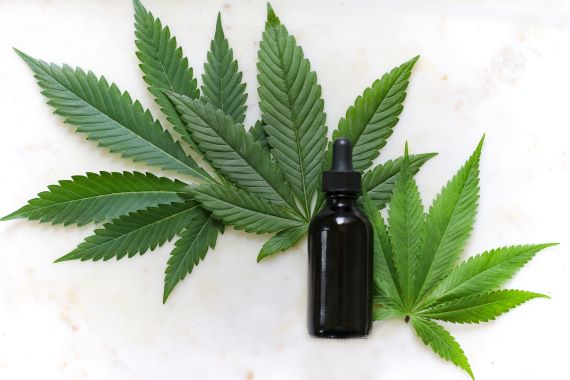How Government Regulations Affect Cannabis Manufacturers and Retailers
The cannabis industry continues to present great financial promises, but numerous challenges exist for those operating in this growing market.
Its supply chain comprises five stages: cultivation, manufacturing, distribution, transportation, and retail. Depending on the stage of the cannabis supply chain a company resides in, different regulations affect them. They can include anything from limited banking opportunities to security challenges from operating solely in cash.
Learn what relief for the cannabis banking dilemma may lie ahead
Understanding and following state and federal regulations are required to keep a cannabis company profitable. Failing to adhere to the law is the quickest way to accumulate heavy fines and risk being shut down.
Two cannabis supply chain sectors that often get the most attention are the manufacturers and retailers. Manufacturers are responsible for the cultivation of cannabis and the extraction of cannabinoids from the plant. Retailers obtain their products from the manufacturers and then sell them to consumers. Each sector has its own federal and state regulations to follow, making legal business challenging.
Retailers: Requirements and Guidelines
Starting at the final step of the supply chain, retailers are responsible for packaging and labeling products and distributing them directly to consumers. Because they are the customer-facing element of the process, cannabis retailers face unique regulations compared to cultivators and manufacturers.
Learn more: How cannabis companies can easily navigate their supply chain
State and federal laws restricting the sale of cannabis can make legal retail difficult. Some of the unique requirements retailers face include:
Packaging and labeling rules
Like cigarette companies, cannabis retailers face stringent regulations on packaging and labeling their products for safety reasons. Some common, somewhat specific basic standards include, but are not limited to:
- Font Size – all information must be written in a legible font at least 1/16 in. with height based on the lowercase “o.”
- Licensee name and phone number
- License number and batch code
- Cannabis facts panel
- Child-resistant packaging
The cannabis industry is a highly competitive one. Retailers are faced with the problem of producing enough products at a profit to stay in business while also being able to meet all of the strict regulations that come with operating within the cannabis industry.
What do you think: Does Inflation Affect Marijuana Businesses in 2022?
Although all of these regulations are for safety reasons for consumers, it makes packaging extremely difficult for retailers to meet all requirements cost-effectively.
Product promotion politics
Cannabis product promotion is a very tricky business. Each legalized state has its own regulations and laws, making it a painstaking process. For example, in Colorado (one of the first states to legalize cannabis for recreational use), television and internet marketing campaigns are only legal if less than 30% of the estimated viewing population is expected to be under 21.
In addition, all of the possible harms of using cannabis must be printed on the packaging (similar to medications), which inhibits the retailers’ ability to market the products.
Vendor limitations
Retailers can only buy cannabis products from licensees from the same state. Also, to comply with regulations, all retailers must check lab tests of each brand of drugs they bring into their dispensaries. These limitations make purchasing from vendors highly complex and often give illicit market sellers an upper hand.
ID Checking Regulations
Unlike cultivators and manufacturers, retailers deal directly with consumers, meaning they have to check compliance with the individuals as well as their suppliers. Not only do they have to be licensed and ensure they are legally acquiring new products, but they also must make sure they are selling products to of-age consumers.
Every legalized state requires users to be at least 21 years old, and similar to alcohol, strict ID policies are put in place to prevent the sale of cannabis to underage people.
Cannabis retailers face strict guidelines for how they sell their products, making it a challenge for small businesses to keep track. As cannabis insight within the United States continues to develop, the government may relax some regulations to encourage legal sale in place of the illegal counterparts.
Manufacturers: Requirements and Guidelines
Like the challenges faced by the retail sector, cultivation and manufacturing regulations vary across states. But, product safety becomes a more significant concern with a host of additional compliance requirements to keep in mind – chemical, biological, and physical dangers. Each manufacturing and cultivation step is subject to Occupational Safety and Health Administration (OSHA) rules.
There are numerous state requirements to complicate the cultivation and manufacturing side further. For example, in states like Nevada, the processing and manufacture of cannabis must not be visible from a public place. There are many other inventory reporting, safety patrol
and waste removal requirements.
Get smarter: Cannabis manufacturers get a toolkit for tough times ahead
While these conditions can be daunting, the most critical aspects of compliance are rooted in good leadership. Management must develop a solid safety culture and ensure everyone is committed to consumer protection. A structured and comprehensive approach to safety is essential.
Following health and safety standards in the cannabis industry for manufacturers is extremely difficult, but it’s the unfortunate reality of working in a recently legalized field. To keep track of the requirements, a formalized safety management system should be in place with clearly defined roles and responsibilities.
Expect Complexities
The cannabis supply chain is a complicated web of businesses that must comply with numerous government regulations in order to keep the drug legal and safe. From farm to dispensary, each step in the process must adhere to specific guidelines to avoid criminal penalties. This complex network of businesses is constantly changing as new jurisdictions legalize or decriminalize cannabis, so it’s crucial to stay up-to-date on the latest regulations.
While cannabis regulations may be similar between retailers and manufacturers, there are still some key differences that businesses must be aware of. Failing to comply with these regulations can result in stiff penalties, so it is vital to understand and follow the specific state or federal requirements. Since manufacturers don’t have to comply with quite as many regulations as retailers, it gives them a competitive advantage that can sometimes lead retailers to cut corners and disregard compliance to save money.
Over time, however, some regulations might be eased, as it’s more beneficial for society to have cheaper legal options and avoid sending consumers to black-market sellers.
FAQs
Why are there different regulations for cannabis retailers and manufacturers across the US?
There are different regulations for cannabis retailers and manufacturers across the US because cannabis is still illegal at the federal level. The US federal government has not yet legalized cannabis, so it is up to each individual state to decide how to regulate it. Some states have more relaxed regulations for cannabis retailers and manufacturers, while other states have more strict rules.
Also, retailers and manufacturers serve different purposes in the cannabis supply chain. Retailers are customer-facing, meaning they have to follow guidelines based on the visual aspects of cannabis. On the other hand, manufacturers are in charge of the health and safety aspect of the products. Both ends of the supply chain have to follow their respective regulations in order to protect consumers and track the drug.
Why are states so strict on cannabis regulations?
States are strict on cannabis regulations because they want to ensure that they can control the distribution and sale of the drug. After all, cannabis products offer tax benefits for the states that allow them. States also want to ensure that people are not abusing the drug and that it does not negatively impact society.
What is the future of federal and state regulations on cannabis products?
The future of federal and state regulations on cannabis products is still uncertain. However, some indications are that the federal government may move towards a more lenient stance.
At the state level, attitudes towards cannabis are also changing. Making cannabis profitable for legal companies benefits society because it takes business away from dangerous black market sellers.







